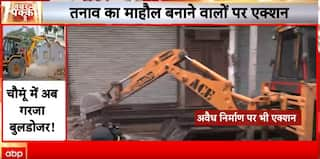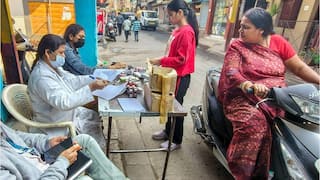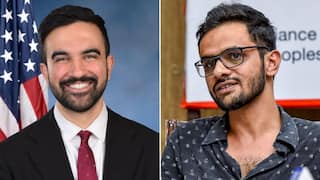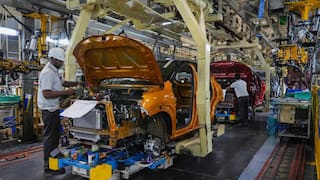Sri Lanka Crisis: Politics Or People? All Eyes On Who Will Win The Fight
Amid the political upheaval, PM Ranil Wickremesinghe has been appointed the interim Sri Lanka president until the new president is elected on July 20.

Chennai: On a day when fresh civilian protests erupted in Sri Lanka after word got out that embattled President Gotabaya Rajapaksa has fled to Maldives, the administration was clearly at a loss to control the chaos on the streets and bring a semblance of stability and order to the economically battered island nation. While Rajapaksa is yet to make good on his promise to tender his resignation, former prime minister Ranil Wickeremesinghe was announced as the interim president without any prior intimation.
Amid speculations of Rajapaksa’s resignation after he fled to Maldives in a military aircraft on Wednesday, Parliament Speaker Mahinda Yapa Abeywardena said: "We haven’t received the resignation but we hope to get it in the day."
However, the delay in Rajapaksa tendering his resignation is being viewed as his plan to receive the perks, reception and protection as a Sri Lankan President in a foreign nation. As per early reports, he is expected to fly to Dubai and a special bungalow is also reportedly getting ready for his stay.
Amid the political upheaval, PM Ranil Wickremesinghe was appointed the interim Sri Lankan president until the new president is elected on July 20.
Appointment of Ranil Wickremesinghe
According to the constitution of Sri Lanka, once the President resigns from his post, the PM takes over, and following the resignation of the PM, the Parliament Speaker takes over as the head of the nation. After the appointment of the Speaker, an MP elected by other Parliamentary members becomes the President.
However, the announcement of Ranil Wickramasinghe as the acting president of the island nation even before Gotabaya's resignation has left the lawmakers perplexed.
Meanwhile, amid all the confusions, people have been staging nationwide protests demanding the resignation of both President Gotabaya Rajapaksa and PM Ranil Wickramasinghe.
People's Protest In Sri Lanka
Soon after the announcement, massive protests rocked Sri Lanka on Wednesday as agitators gathered outside the prime minister's office and residence in Colombo, prompting Wickremesinghe to declare a state of emergency in the country. Army personnel had to use tear gas to disperse demonstrators outside the office of PM.
In this backdrop, the political moves of the Opposition also gain prominence as they are being closely watched by the people of the nation.
Opposition's Next Course Of Action
The principal Opposition party in Sri Lanka, Samagi Jana Balawegaya led by Sajith Premadasa, has said the appointment of Wickremesinghe has only led to confusion and claimed that they have the support of the majority of MPs. Supporters of Opposition leader Sajith Premadasa also said that he will soon take over the top post with the support of the MPs.
Meanwhile, Tamil parties and organisations in the country have decided to continue with the 'wait and watch' mode. However, there is high possibility for Tamil parties to extend support to Sajith, political analyst Ranu Dhanasingh told ABP Nadu.
The Indian Embassy in Sri Lanka has said they are closely monitoring the situation. American and Chinese embassies are also taking a similar stand.
Financial organisations, including the International Monetary Fund (IMF), have opined that no matter who becomes the president, it will take forever and a day to gain an economic stability in the island nation.
It is, hence, yet be seen whether it is the political gameplay or people's protest that will win in Sri Lanka.
(With Bharathi SP)
Related Video
Indore Water Crisis: Contaminated Supply Causes Deaths, Authorities Face Severe Negligence Questions





































